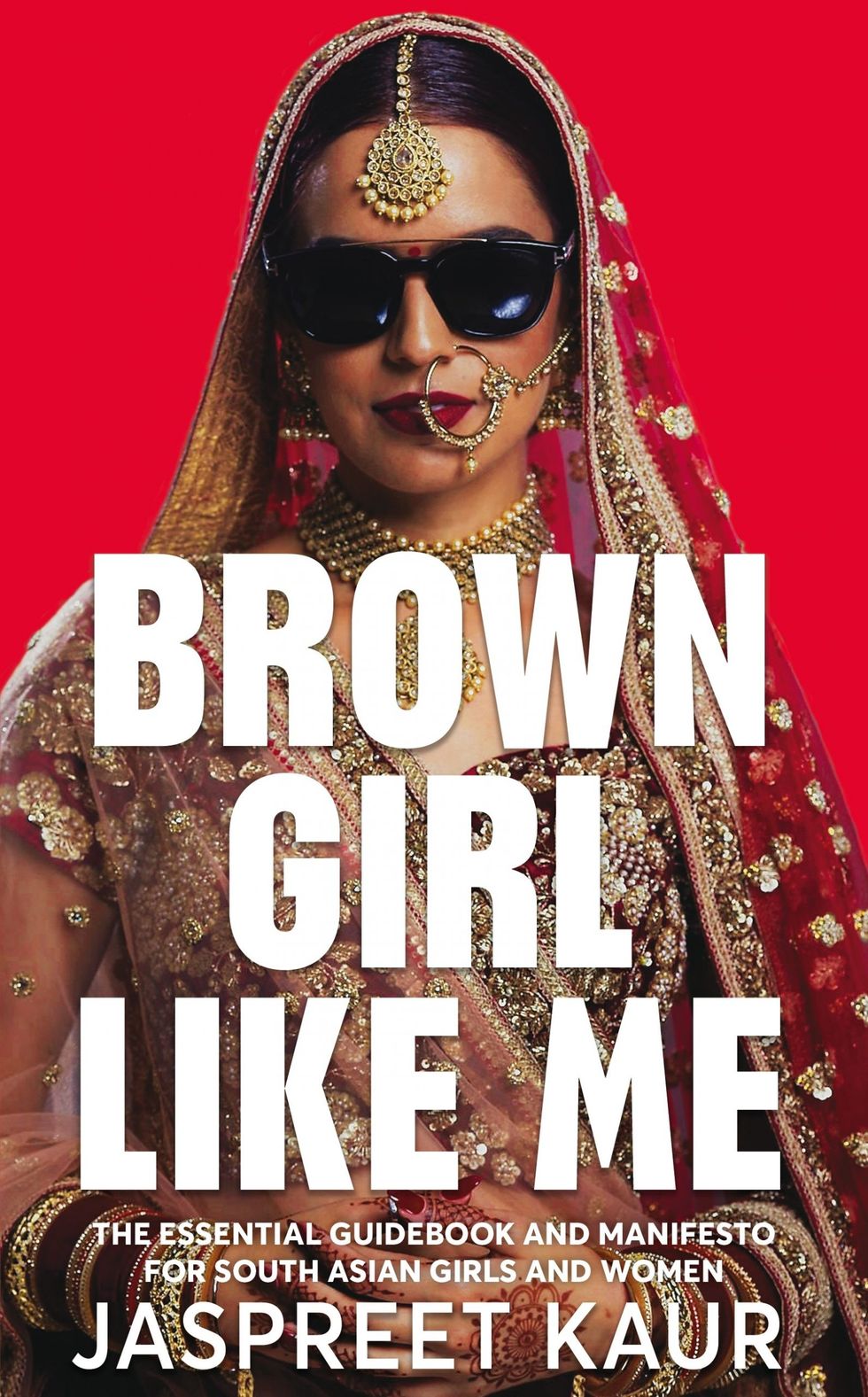A THOUGHT-PROVOKING book filled with power was always going to be inevitable from teacher and award-winning spoken word artist Jaspreet Kaur.
Her debut book Brown Girl Like Me is a terrific toolkit that tackles taboo subjects in a way perhaps not done before, gives space to differing viewpoints and offers solidarity to cross-generational women.
She discusses diverse subjects that include mental health, menstruation stigma, education, beauty standards, feminism, cultural appropriation and microaggressions, but also offers a window into a world of cultural confines and stories of inspirational brown women.
Eastern Eye caught up with the multi-talented writer to discuss her deeply personal new book, key messages she wants to convey and desire to empower others.
What inspired Brown Girl Like Me?
As a youngster, I always wished there was a guidebook on how to deal with growing up brown, female, marginalised and opinionated, but there was no blueprint. I remember growing up feeling like I didn’t see Asian women anywhere; our voices and experiences were missing from history books, positions of power, boardrooms, and TV screens. Asian women I did see would be conveyed as passive, quiet and docile, but I knew they were so much more and wanted the rest of the world to see that too. Every day, brown women are resisting, challenging, and thriving. But where were their stories? That’s when the idea for Brown Girl Like Me was born.

Tell us about the book?
Part toolkit, part call-to-arms, the book is a brown girl's manifesto that equips girls and women with the confidence and tools they need to navigate the difficulties of an intersectional identity. It unpacks key issues like media, the workplace, home, education, mental health, culture, confidence, and the body to help south Asian women understand and tackle issues that affect them and help them be in the driving seat of their own lives.
Tell us more…
The book is interwoven with academic research, anecdotal stories, and interviews with brilliant south Asian women from all walks of life – from politicians to filmmakers, psychologists to schoolteachers, activists to Olympic athletes, bibis and granddaughters – to show what life is really like for brown women in the diaspora.
How many of your own personal experiences are in the book?
I wanted to give myself permission to be vulnerable. I shared experiences of my mental health struggles, anxiety, depression, and examples of microaggressions I faced within educational institutions and the workplace. How I navigated difficult moments with my family and cultural expectations, and most importantly, ways I overcame obstacles and barriers. I believe vulnerability creates connection, and can help others, so gladly shared these personal moments in the book. It reminds us that we’re not alone.
Who will connect with the book?
This is essential reading for anyone wanting to build a fuller picture of women’s lives in Britain today. It’s essential reading for south Asian women, and people with an interest in feminism and cultural issues. It will educate, inspire, and spark urgent conversations for change. But this book is not just for Asian women. It really is a book for society to better understand a significant part of our population. Ultimately, I want this book to foster a space for learning, understanding and
empathy.
What are key messages that you want to convey?
The book is a blueprint for brown women everywhere, with the nucleus being healing. Healing from hurt, confusion and loneliness we may have faced in our lives as Asian women, and with that healing comes a sense of confidence and self-empowerment. A beautiful finding from the book is a growing sisterhood of brown women, online and offline, supporting one another. Other key messages are that you don’t need to come closer to “whiteness” to become a strong, independent feminist and to love who you are. In fact, there is so much within Asian culture and history that can help empower us, and we can lean into that.
Did you learn anything new while writing this book?
Alongside the academic research, I was able to speak to around 200 different brown women, who had so much to teach me from their life lessons on family, culture, health, freedom, and love. Some of the most interesting learnings came from Beeji, my grandma-in-law, who I am a carer for. Her nuggets of wisdom are weaved throughout the book.
You touch on topics not really written about. What was the most interesting
one you encountered?
One of the most interesting findings was how brown women are so used to putting up with pain, in more ways than one. Combine this with the lack of research and funding going into south Asian women’s health (compared to white-cis-men), it means that women’s pain is often dismissed, their illnesses misdiagnosed or ignored. It’s known as the Yentl Syndrome.
Is it fair to say that you want to empower readers?
Absolutely, that is one of the book’s key aims. Hopefully, it empowers them in navigating all the intersectional parts of our identity, culture, faith, the home, workplace, school, and university. I wanted brown women to feel seen, heard, have a voice, and empowered to navigate their lives.
Would men connect with this book?
This book will help men be better allies to the women in their lives. There are a lot of messages in the book aimed directly at male readers on what they can do better, but also specific issues that may affect them. For example, institutional racism and patriarchal structures impact brown men in many ways. In the book, I’ve highlighted how detrimental they can be to the mental health of men in our communities.
Do you think the word feminist is sometimes misunderstood?
Yes, but that’s changing. What it means to be a feminist is someone that wants social, economic, cultural, and political equality of the sexes. Who wouldn’t want that? Ongoing son preference, violence against women, unequal division of labour and unequal pay are just some of the injustices that are highlighted within the book that show what the world will continue to look like if we don’t support the feminist
movement.
What has helped you get through challenging times?
In the first chapter of the book, Brown and Down, I gave some of the techniques that I have built over the years for my mental health toolkit. As well as mental health support, such as talking therapy, writing, spending time in nature and meditation have really supported me through challenging times. Leaning into ancient practices of our own cultures and faiths can help too, such as yoga and meditation. And perhaps most importantly, I speak up, and no longer stay in silence if I am struggling.
Are you fearless?
I wish! I’ve had lots of fears over the years, like fear of change and failure. But as I’ve got older, and hopefully wiser, I’ve realised fear can sometimes be a good thing. It means you have something to fight for.
What do you enjoy reading?
I have been the biggest bookworm ever. One of my favourite books is the late bell hooks’ All About Love. She was an educator, poet, and writer like myself, so she was a huge inspiration to me.
Why should we pick up your new book Brown Girl Like Me?
Being a woman in this current climate is hard, being a brown woman is even harder. The pandemic has made things even more difficult. The World Economic Forum’s Global Gender Gap Report suggested that the impact of the pandemic means the expected closing of the global gender gap has increased by a generation, from 99 to 135 years in the future. This book is my way of helping that fight for positive change. The last book of this kind was written in 1978, four decades ago, so it’s about time that brown women are seen, heard and empowered.


















 Samantha promises equal pay for all cast and crew membersGetty Images
Samantha promises equal pay for all cast and crew membersGetty Images  Samantha Ruth Prabhu sets a powerful example for pay parity in South Indian cinema with Bangaram.Instagram/SamanthaRuthPrabhu
Samantha Ruth Prabhu sets a powerful example for pay parity in South Indian cinema with Bangaram.Instagram/SamanthaRuthPrabhu

 Gadot’s legacy serves as a reminder that we all have the power to be heroes in our own livesInstagram/ gal_gadot
Gadot’s legacy serves as a reminder that we all have the power to be heroes in our own livesInstagram/ gal_gadot